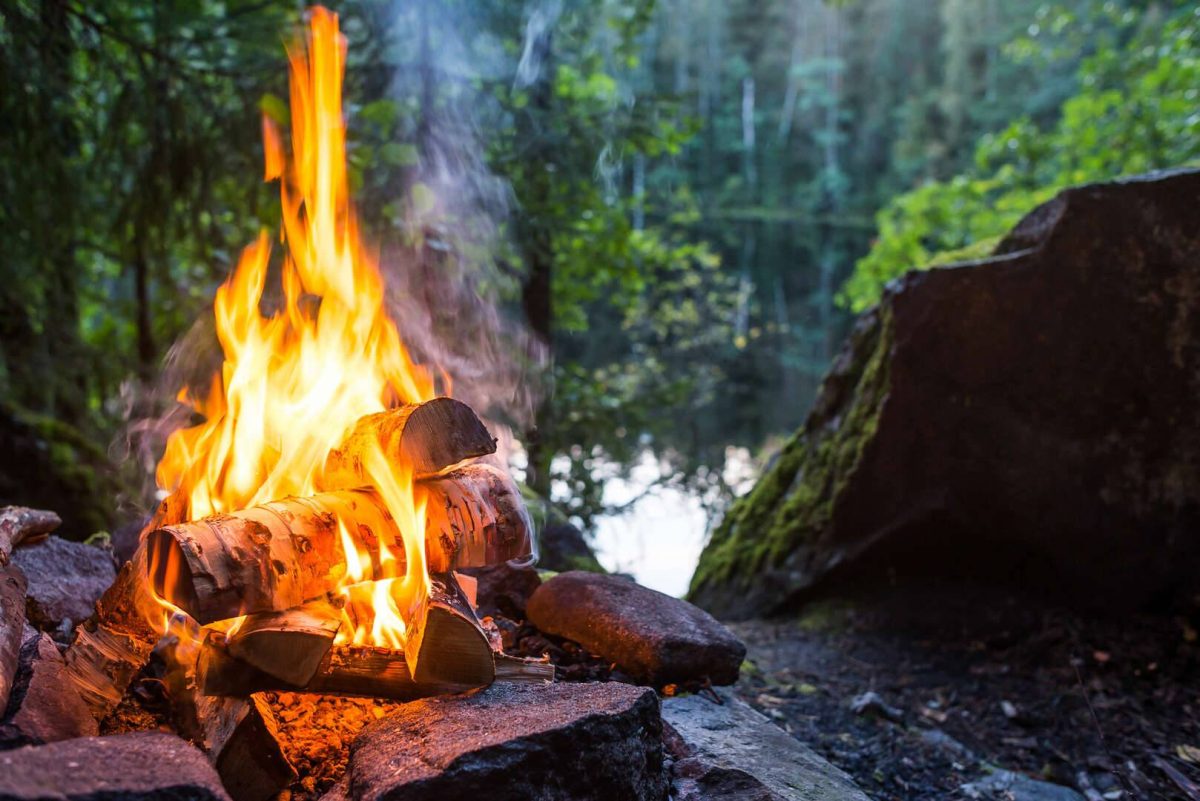30 Things Every Hunter Worth Their Salt Should Know How To Do

30 Things Every Hunter Worth Their Salt Should Know How To Do
Sportsmen come from all walks of life: rich, poor, young, retired, self-inspired, or groomed into the lifestyle by those who came before us. It is safe to say that no two hunters have precisely the same tastes when it comes to what game to hunt, caliber of game to harvest, what weapon to use, or what caliber is best. There are however 30 things that any hunter worth their salt should be able to do, in order to honorably bear (intentional pun) the title of hunter, or better yet, Iowa Sportsman.
• Field dress the animal you’re hunting. Hunters will always be there to congratulate you on a harvest. But when push comes to shove, no one “wants” to do your dirty work. Pull up your sleeves big guy! It’s time to get messy.
• Identify Edible from Non-Edible plants. The difference in Poison Ivy and Raspberry leaves is subtle…but trust me, it makes a big difference which one you pick and put in your mouth.
• Know and be able to Identify edible fungi. Morels, Dryads Saddle, Chicken of the Woods, Oyster Mushrooms, Elephant Ears…brings this list to 5. Pick and eat the wrong ones, and you won’t feel very alive!
• Build a Fire. You may not think you would need to know this skill in Iowa. But take a back-country trip someday and you will soon warm up to the idea.
• Hold a conversation…IN PERSON. Unfortunately, most of the big bucks are hanging out on old farmer Joe’s side of the fence, and you won’t get permission without solid eye contact, a firm handshake, and a serving of humble pie.
• Get your hands dirty. Dirt, blood, sweat, and mud are all very common in this sport. If the thought of getting dirt under your nails makes you cringe, just stay in that salon chair son. Add an extra coat of gloss while you’re at it.
• Grow a Mustache…wait, what? That’s right. Yours may grow in patchy and be hard to tame, but growing a mustache teaches you patience. It puts your faith in the long game.
• Identify animal tracks. How can you track what you are chasing, if you can’t tell what you are tracking?
• Identify Trees. Not only will this impress the ladies at the local park, identifying trees will help you know what to expect from the animals in the part of the forest you are hunting. And no, “You can tell its an aspen, because of how it is” doesn’t count.
• Identify Birds. This one has more to do with passing the time between seeing what you are after and when you get to the stand. As a bonus, you will be sure to impress the local biologist with your knowledge on the Pileated Woodpecker.
• Make a shelter. There is more than one way to put a roof over someone’s head. One requires money, the other doesn’t. Be a guy or gal who can do both.
• Hike two miles with a 30lb pack. Those rolling hills in Iowa may not compare to the Sawtooth Range in Montana, however, being in good shape is something every hunter will learn to appreciate.
• Identify a roost tree. This one requires putting a couple pieces of the puzzle together. What kind of trees, what location, and what kind of signs typically surround a turkey roost?
• Identify wind direction and know how to hunt it. A whitetails best sense is their nose. You can’t completely avoid your armpit stench, but you can position yourself so that it blows the other direction.
• Find a deer bed. Where a big gnarly buck beds will tell you 50% of how to hunt him. Find it, analyze it, and capitalize on it.
• Drink your coffee black. You can’t pay for that gritty texture at Starbucks bud. Embrace it and feel that chest hair sprouting!
• Feel the Call of the Wild. I can’t explain this one. You will just know it if you feel it.
• Catch a fish. Hunting only lasts a few months. If you want to feed your family, especially if you can’t identify edible forbs, you will need to know how to drown worms and rip lips.
• Cook over a fire. This isn’t rocket science. However, if you really want to impress someone on a first date, you can’t beat the ambiance of killing or catching game and cooking it on a stick for them over a fire you built with your own two hands. 60% of the time, it works. Every time.
• Set up a ground blind in less than 60 seconds. This allows you to minimize noise in the wee hours of the morning. It also will let you sleep in a few extra minutes before heading out.
• Identify buck and doe trails. Bucks and does use the same trails sometimes. However, bucks will cruise on solitary trails to wind community routes for hot does as well. Knowing how to ID a buck trail will give you a leg up on him come rut time.
• Signal a buddy with animal noises. The crow “Caw…caw…caw…” is super cliché. Be creative and game plan before you go out. I prefer to use wolf howls to signal my buddy of a fresh kill.
• Read a Topo map. This can save you some leg work and miles by being able to ID travel routes and elevation without leaving the dining room table.
• Support Conservation groups and know the current issues. Sportsmen take their way of life for granted all too often. With our National and State level political environment rapidly changing, it is crucial for us to do our part to give them a reason to keep these traditions alive.
• Vote on the conservation issues. Knowing the what is on your ballot and what is at stake is vital in making a positive impact at the polls. If you like your state and county recreation areas, be sure to keep them around for the next generation. The wrong vote or no vote can mean the difference of a piece of land here today and gone tomorrow.
• Own and Carry a multi-tool. You may not know why you have it in your day pack, but it sure feels good to know it is there.
• Dig your own fishing bate. Remember the dirty hands? Don’t be afraid to dig that pasture dirt, flip those cow pies, or pull a worm right from a robin’s pecker! This is your bait. Get in there and take it!
• Remove a tick. Spend enough time in the woods and one of these little suckers will get you. These buggers carry some nasty things nowadays, so check early and check often.
• Know your local regulations. If you don’t, it could be your last season enjoying the great outdoors.
• Read the Iowa Sportsman. Nuff said!
by Aaron Stonehocker
August 2019
Here are some ideas for shed hunting during the off-season
If you are looking for this month’s issue of the Iowa Sportsman, Check it out Below
Here is the Cattle/Dairy side if you were wanting to check that out

